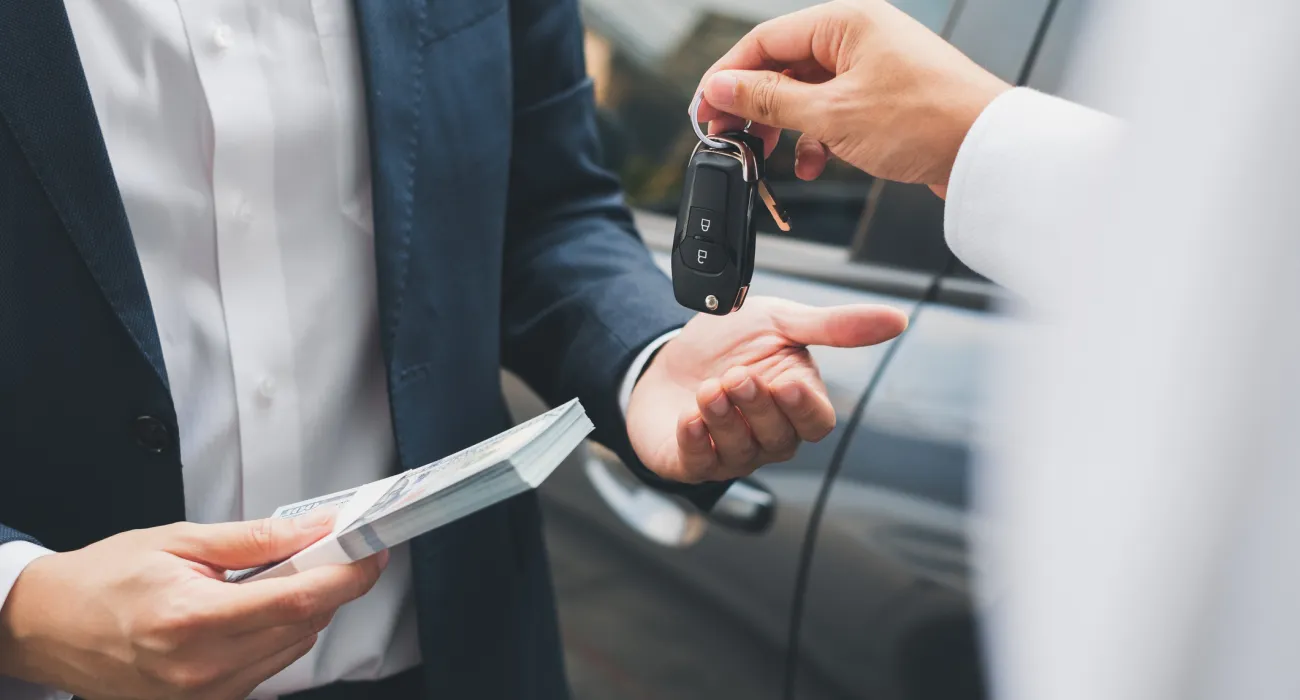Did you know that the surge in used-car prices is undoing years of
depreciation on the vast majority of models? This is leaving some car
owners with vehicles worth more now than when they first bought them. The
prolonged inventory crunch at dealership lots is turning the U.S. used-car
market on its head. In essence, used vehicles that have historically
depreciated in value are now rising in value. That means some recently purchased
ones are worth more now than their original price. In fact, the average price
of used cars and trucks for urban consumers has gone up by 40.5% since this
time last year.
The number of used car transactions has also grown significantly. The prices for used cars have risen faster than the rate of inflation, which is already at record high levels. This phenomenon is wiping out pay raises and reinforcing the Federal Reserve's decision to begin raising borrowing rates across the economy. Bleak as the market is for used-car buyers, the computer chip shortage has also driven new-vehicle prices higher. The price for new vehicles in January has gone up by 12.2% since the same time last year, according to data from the U.S. Bureau of Labor Statistics.
The average new vehicle according to Edmunds.com is edging toward a whopping $46,000. With automobile manufacturers still trying to resume normal levels of factory output, dealers have been left with a scarcity of new vehicles to sell at stores. This has pushed a great deal of new car buyers into the used-car market where they are also encountering limited options. Used-car prices have surged, and you may be able to make that work in your favor. With unrelenting demand and limited inventory for both new and used vehicles, you won't find much wiggle room in the prices that you see.
However, this can actually be good news for consumers because car dealerships are paying more for used models. You may very well have one parked in your garage or driveway. Most new car dealers want used cars in order to stem the tide of losing customers. Furthermore, it's hard to tell how long it will take for things to improve since that relies on the new-car inventory returning to more normal levels. The bottom line here is that it's a great time to capitalize on your trade-in. Car dealerships are not currently offering much in the way of discounts. They're not even negotiating as much on prices as they have before.
Yet, trade-in values for vehicles are through the roof. The amount of money that buyers are losing on discounts can actually be less than the amount of money they are gaining on trade-ins because the value of the used vehicles are so high right now. This also holds true for cars, trucks, and SUV's with higher mileage. The average amount of money paid for automobiles with mileage between 100,000 and 109,999 rose by 31% since the same time last year. Even if you don't think the vehicle you're trading in is worth much, it may very well yield significantly more money than you anticipate right now due to the elevated prices.
That's exactly where your negotiating skills can come in handy. Even though you probably won't be able to get the price down, it is possible for you to push for more for your trade-in. If you have a trade-in, that sweetens the deal because the new car dealers want that trade-in. If you're nearing the end of your lease, you may be able to buy it out for less than what you'd pay for the car if it were sitting on a dealer's lot right now.This is because the residual value, which is the vehicle's worth at the end of the lease, was established when you signed the lease several years ago.
Those leases started before anyone knew there'd be a pandemic or a chip shortage. There's a good chance that the market says the vehicle is worth more than what it was predetermined to be a few short years ago. If you consider going this route, be sure to know your state's sales-tax rules that would apply, because that can add to the cost of the buyout. Overall, used-car prices are rising so quickly that some consumers are selling their vehicles for a tidy profit. Move over real estate. A wide range of people around the country are taking advantage of rising prices to sell their cars and make good money.
They're basically finding that their automobile is an unexpected source of income at a time when wages are squeezed by soaring inflation and young people are looking to new side hustles to make ends meet. A significant amount of young professionals are getting rid of unnecessary second cars or switching their vehicle for a bike to make some extra cash. Some have even turned to car-flipping as a profitable business. Consumers are able to sell their used cars very quickly. The market is so good, everything is selling at high prices. Delays for new cars have led some consumers to spend more money on a secondhand vehicle than a new version of the same model, because they can get their hands on them faster.
Something else to consider is buying or leasing an electric vehicle. In fact, 2022 is shaping up to be a good time to drive an EV. This is based on lower prices, yes I said lower prices, increased driving range, and more models than ever before. All of this adds up to the fact that buying or leasing an EV is a better option than in years past. So, how much money does an EV currently cost? The cheapest EVs start at a little over $28,000 with the 2022 Nissan LEAF. With the full potential value of a $7,500 federal EV tax credit your actual cost could dip just under the $21,000 mark before factoring taxes & fees.
That's also before considering any state & local plug-in rebates. When all is said and done, you could actually drive a new EV for free for a few years once you sell your used vehicle for more money then you originally paid for it. Like mainstream automobiles, EVs have also been affected by the global microchip shortage. As a result, it may be harder to find the exact model you're looking for. However, EVs are not nearly as popular as their fossil fuel guzzling cousins. In all actuallity, only a small fraction of vehicles sold across the United States are EV's. That means there is less demand which equals more supply.
In the meantime, buying a used vehicle certainly isn't what it used to be. Prior to the inventory shortage, buying a used vehicle allowed shoppers to pay less on the same vehicle versus when it was new. It also provided them with the ability to bypass new-car depreciation, which was traditionally estimated at 20% as soon as you drove your new vehicle off of the lot. However, such savings are no longer available. Based on a price analysis of used-vehicle inventory among Cars.com dealers, median used-vehicle prices have been on a steady upward trajectory since the inventory shortage began, and they've climbed every month since January 2021.
The question is how long will these prices remain? I've seen a few projections that state things will get back to normal towards the end of 2022 or at the beginning of 2023. However, the truth of the matter is we really don't know. Until the global shortage of microchips is well in the rear view mirror, I believe that new and used automobile prices will continue to rise. That being said, if you are planning to sell your used car for a profit, you may want to consider pulling the trigger sooner rather than later just in case.




